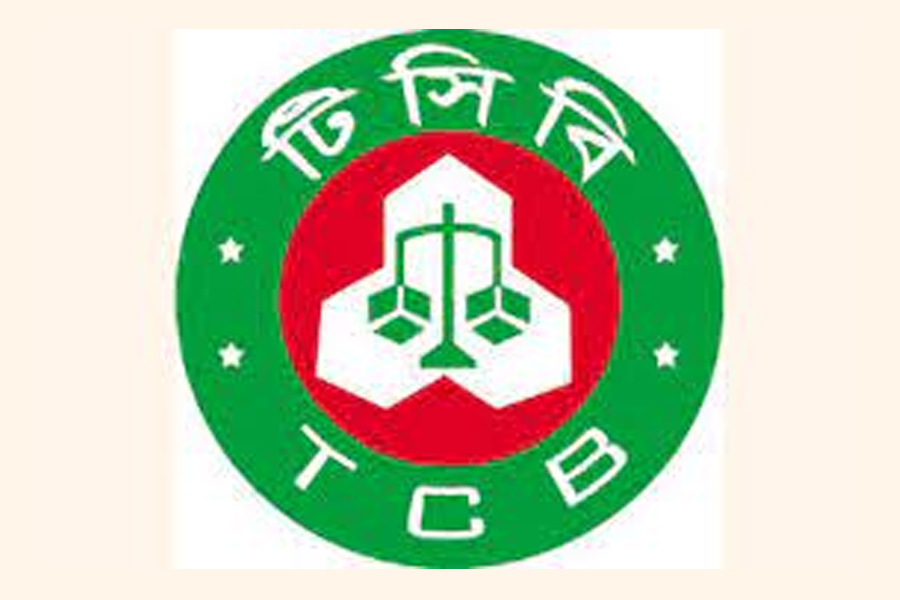TCB seeks Tk 100b funds from government
Bid to reduce dependency on costly bank loan

Published :
Updated :

The Trading Corporation of Bangladesh (TCB) has sought around Tk 100 billion of funds directly from the government to help the state-run agency lessen its dependence on costly bank loans, a source has said.
To this practice, the entity has recently proposed giving direct allocation so that it can procure different essential goods in cash instead of loan against trust receipt (LTR).
In case of taking LTR from banks, the TCB had to pay interest at a rate between 11 per cent and 12 per cent. Such borrowing increased import/purchase costs, the source added.
If the government does not provide the allocation directly, the state-owned entity has to pay interest rate more than 13 per cent against LTR currently as the bank interest rate has been increased in the banking sector, he mentions.
In the current national budget, the government has given a budget allocation of 98.60 billion. Against the budget allocation, the TCB can takes LTR from the state-run banks for procuring edible oil, sugar, lentil etc. for operating its commodities' sales drive at subsidised prices among 10 million low-income families.
A director of the TCB said, "We've proposed nearly 100 billion fund allocation directly on the commerce ministry's advice."
Recently, at an event state minister for commerce Ahasanul Islam Titu has revealed some plans, including maintaining a buffer stock of essential commodities available under the TCB's subsidised sales programme in the near future.
He expressed the hope that it would be possible to build a one-and-a-half month's stock of such products and such a system would be able to break up any syndicates and to mitigate the shortage of kitchen items.
Besides, he also expects that the government plans to add more items to the list of these commodities available under the TCB's sales programme soon.
A commerce ministry official said, "A buffer stock of such products will be built up to offset the shortage of kitchen items to be collected through the TCB."
The items include sugar, edible oil, onion, lentils, gram and date, he adds.
Currently, the state-owned entity has been operating the essential sales drive throughout year.
But the trading agency could not make any visible impact with regard to keeping the market of essentials stable and at a tolerable level for common consumers despite getting a large amount of deficit financing every year, said the official.
When contacted, a senior official said, "We have proposed the finance ministry allocate the fund directly to the TCB in the upcoming budget."
The TCB has long been hamstrung by capital shortfall, making it difficult for the agency to carry out timely market intervention, the official also says.
Supply of key essentials by the government's trading arm when prices go up on the open market, especially during holy Ramadan, is seriously hampered for the shortage of required working capital, additional director said.
The cost of essentials would become much lower and consumers would be able to buy goods at an affordable rate if the commodities are imported through cash payment, he added.
Besides, required fund are badly needed for strengthening the capacity of the state-run agency, he also says.
Market-intervention activities of the state entity could be carried out smoothly if the TCB had adequate working capital, he adds.
As the TCB sells commodities at subsidised rates, the organisation counts huge financial losses every year.
rezamumu@gmail.com


 For all latest news, follow The Financial Express Google News channel.
For all latest news, follow The Financial Express Google News channel.